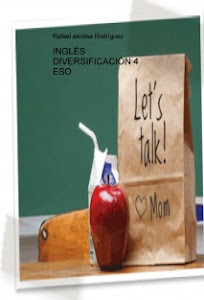
These are errors which occur because two words sound similar or the same, but are spelled differently and have different meanings. Some of the more common soundalike errors:
"Compliment" and "complement"
A "compliment" is a pleasantry, an expression of goodwill, admiration, or respect; "he complimented my typing skills." As a verb, it means "to pay someone a compliment." On the other hand, "complement" means "a complete set," or "to complete or to fit well together with," as in "I have the normal complement of fingers and toes" or "Bob and Jill complement one another beautifully as business partners."
A fine wine will complement a meal, in that it will go well with a meal; wine is not gifted of the power of speech and is unable to give a meal a compliment.
"Allude" and "elude"
To "allude" to something means to refer to it, usually indirectly; "far be it from me to allude to my esteemed rival's history of wombat abuse." "Elude," though, means to escape or avoid; "the suspect eluded police capture by slipping out the window."
"To" and "too"
"Too" means "also" or "to a great extent." "To" means "in the direction of" or indicates an infinitive. You go to the store; if someone else goes along with you, then she goes too. If fifteen people go with you, that's far too many to take one car.
"Tu," on the other hand, is Latin for "you," and does not mean "too." The Latin phrase "et tu, Brute?" means "and you, Brutus?" rather than "you too, Brutus?" Writing it as "et too, Brute?" is completely wrong.
"Accept" and "except"
To "accept" something means to receive that thing; you accept a reward, you accept blame, you accept a FedEx package. "Except" means "with the exclusion of" or "but;" for instance, "I work every day except Saturday and Sunday." Just think: E is for Except, E is for Exclusion.
"Affect" and "effect"
These two words are entirely different parts of speech. "Affect" is a verb: "Your insults do not affect me." "Effect" is generally a noun; that is, it is an actual thing. Slings and arrows have an effect on me; they injure me, and the injuries are things. "You cannot affect me; your idle chatter has no effect on me."
Confusing this issue somewhat is that the word "affect," when the emphasis is placed on the first syllable, is used in the psychiatric community to mean "emotion" or "demeanor," as in "Bob presents a flat affect when you talk to him" (that is, Bob shows no emotion or expression when you're speaking to him); and the word "effect" can be used as a verb to mean "make" or "change," as in "to effect an improvement in the situation."
"Allowed" and "aloud"
"Allowed" means "permitted," as in "I am not allowed to go to the party tomorrow." "Aloud" means "out loud," as in "Read the book aloud." The word "aloud" has the word "loud" in it, which makes these two easy to remember.
"Advise" and "advice"
These two words are also different parts of speech. "Advise" is a verb; you advise someone to do something. "As your lawyer, I advise you to keep your mouth shut." It's pronounced "advize." "Advice" is something that you give someone, or someone gives you. "I did not follow my lawyer's advice, and now I'm in trouble."
"Desert" and "dessert" and "deserts"
This is a very common confusion, even among people who really ought to know better. A "desert" is a place with no water; "We are reading a book about the Sahara Desert." As a verb, "desert" means "to abandon," as in "I may have to desert my Hummer if gas keeps getting more expensive." On the other hand, "dessert" is the treat you have after a meal, as in "Can I have apple pie for dessert tonight?"
This one gets really confusing when you see or hear the phrase "just deserts." Many people erroneously believe that this should be "just desserts;" however, the word "deserts" in this case is an archaic expression meaning "that which someone deserves." A person's "deserts" once meant "the thing a person deserves to have;" thus, "just deserts" means "those things it is just for one to have."
"Discreet" and "discrete"
These words sound the same, but are completely unrelated. "Discreet" means "unobtrusive" or "with good judgement," as in "If you are going to follow someone, it's best to be discreet." A person who is discreet shows discretion, as in "Discretion is the better part of valor." "Discrete," on the other hand, means "made up of distinct parts," as in "A telephone has three discrete parts: a handset, a base, and a cord."
"Lose" and "loose"
"Lose" is pronounced "looze." It means "to misplace," as in "I always lose my car keys," or "to be defeated," as in "We will lose the game without Bob." "Loose" means "not tight" ("This shirt is too loose on me"), or "not confined" ("the dog got loose when the door on his kennel broke").
"Site" and "sight" and "cite"
"Site" is a place. "Sight" is having to do with vision. "We went to the crash site" means "we went to the place where the crash happened;" "the enemy is in sight" means "the enemy is visible." This is a web site, meaning "a place on the Web," not a web sight. "Cite," which is pronounced just like "site," is entirely different; it means to quote, as in "Can you cite any studies that prove what you're saying?"
"Then" and "than"
"Then" has to do with time, as in "We went to the store, then we went to the movies" or "When you finish your homework, then you can go outside." On the other hand, "than" is a conjunction used in comparisons: "He is older than she is," or "that is easier said than done."
"Brakes" and "breaks"
"Brakes" are devices used to stop a moving machine, such as a car. "Breaks" is what happens when something hits something else too hard. If the brakes on your car fail, your car breaks when it hits the wall; a broken brake leads to a broken car.
"Appraised" and "apprised"
These two words are confused with distressing frequency, though they mean totally different things. An appraisal is an estimate of worth or cost; if something is appraised, that means its value has been determined. "The auctioneer appraised the painting as four million dollars."
The word "apprise," on the other hand, means "to inform" or "to give notice." If you wish to be notified about something, you would say "keep me apprised of the situation," not "keep me appraised of the situation."
"Vehemently" and "violently"
Several people have written to comment about the confusion between these words. "Vehemently" means "with energy or passion;" if you do something vehemently, you do so in strong terms. So for example, you might say "I vehemently disagree with what you just said."
"Violently" means "with physical violence." I'm not quite sure when it started happening, but it seems that many people say things like "I violently disagree with you" when they really mean "I vehemently disagree with you."
It's "per se," not "per say."
Per se is Latin for "of itself." It means "intrinsically," as in "a state government is not a sovereign entity per se, but is subsumed under the Federal government."







































